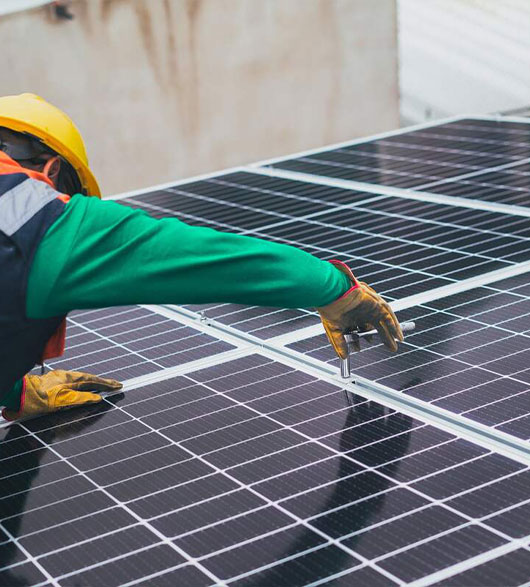



Frequently Asked Questions
Solar panel installation refers to the process of placing photovoltaic (PV) panels on rooftops, buildings, or other structures to harness the sun’s energy and convert it into electricity.
There are several benefits to installing solar panels. Firstly, they can significantly reduce your electricity bills as you generate your own clean energy. Solar panels also help reduce greenhouse gas emissions and combat climate change. Additionally, solar power provides energy independence and can increase the value of your property.
Solar panels contain photovoltaic cells that absorb sunlight and convert it into direct current (DC) electricity. An inverter is then used to convert the DC electricity into alternating current (AC) electricity, which is the type of electricity used in homes and businesses.
Solar panels can be installed in most locations that receive sunlight. However, the efficiency of solar panels can vary based on factors such as the amount of sunlight, shading, and the orientation and tilt of the panels. It is recommended to have a professional assess your location to determine its solar potential.
Solar panels generally require minimal maintenance. Regular cleaning to remove dirt and debris is recommended, but they have no moving parts that need regular servicing. It is advisable to have a professional inspect the system periodically to ensure optimal performance.
While solar panels are most effective under direct sunlight, they can still generate electricity on cloudy days. However, their energy output will be reduced. Solar panels do not generate electricity at night, but with an on-grid system or off-grid system with sufficient battery stotage you can still access electricity either from grid or battery.
Yes, there are often incentives and financial benefits available for solar panel installations. These can include government tax credits, rebates, grants, and net metering programs that allow you to sell excess electricity back to the grid. The availability and specifics of these incentives can vary depending on your location.




